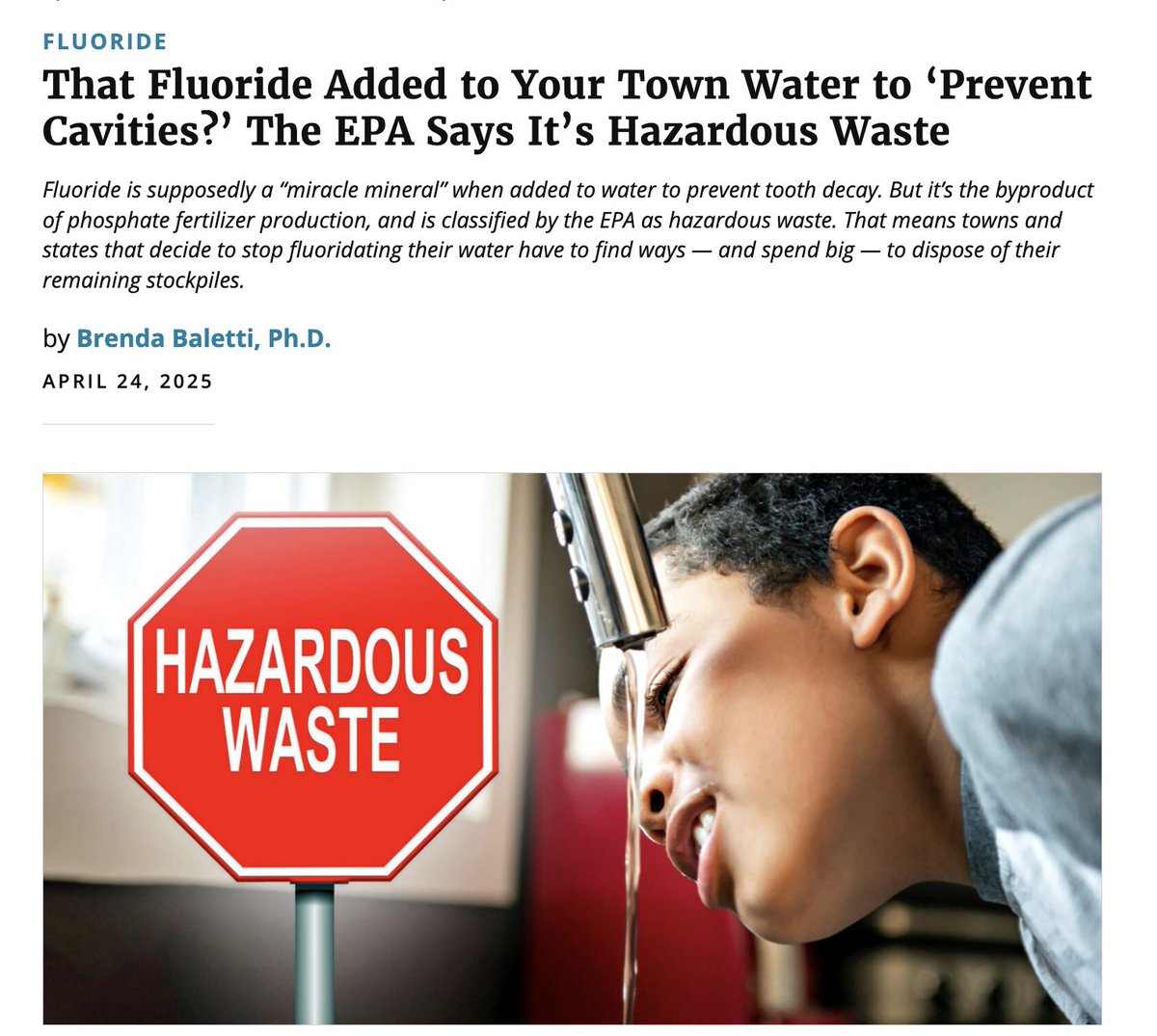
FAN seeks to broaden awareness about the toxicity of fluoride compounds among citizens, scientists, and policymakers alike.
How to get URL link on X (Twitter) App


 ‘They have no idea how toxic this stuff is’
‘They have no idea how toxic this stuff is’
 The fluoride added to municipal tap water systems most often comes in the form of hydrofluosilicic acid (HFSA), a hazardous waste byproduct of phosphate fertilizer production. HFSA is almost always used in large cities that fluoridate their water supplies. In smaller communities, sodium fluoride or sodium fluorosilicate may be used as the fluoridating agent.
The fluoride added to municipal tap water systems most often comes in the form of hydrofluosilicic acid (HFSA), a hazardous waste byproduct of phosphate fertilizer production. HFSA is almost always used in large cities that fluoridate their water supplies. In smaller communities, sodium fluoride or sodium fluorosilicate may be used as the fluoridating agent.
 FAN’s Executive Director Stuart Cooper said, “The authors combined information from multiple studies to get a more reliable view of the total evidence that isn’t skewed by just one or two outlier studies. This approach is called meta-analysis.
FAN’s Executive Director Stuart Cooper said, “The authors combined information from multiple studies to get a more reliable view of the total evidence that isn’t skewed by just one or two outlier studies. This approach is called meta-analysis. 
 2. A study of two towns in Finland that ended fluoridation found that over the next 6 years, decay rates in children either declined or remained the same after discontinuing the practice.
2. A study of two towns in Finland that ended fluoridation found that over the next 6 years, decay rates in children either declined or remained the same after discontinuing the practice. 

 2 “Well if you want the whole story, I was asked to meet with a professor from Harvard’s Dental School. He came to my office and essentially threatened me. He said I was endangering public health, and he demanded that I issue a statement similar to what you’re talking about now.”
2 “Well if you want the whole story, I was asked to meet with a professor from Harvard’s Dental School. He came to my office and essentially threatened me. He said I was endangering public health, and he demanded that I issue a statement similar to what you’re talking about now.”